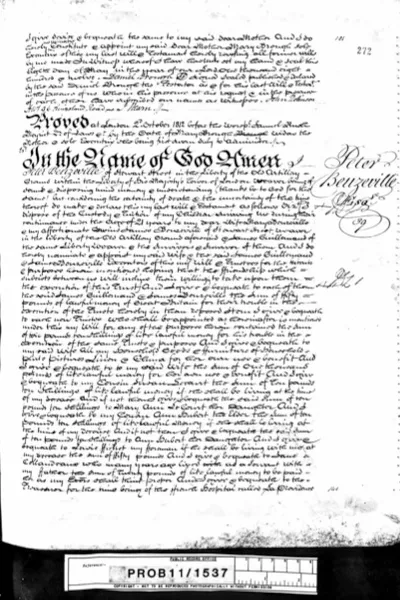Update 6 November: The National Archives has now increased the maximum number of free digital records per month from 50 to 100.
The National Archives (TNA) has announced free access to its digital records for as long as its Kew facility is closed due to the coronavirus pandemic.
The records, which are normally available to download for £3.50 each, include First World War records and 1348-1858 wills.
To access them, family historians will need to register for a free account with Discovery, TNA’s online catalogue.
They can then order and download up to 10 items at a time, with a limit of 50 items over 30 days.
TNA notes: “The limits are there to try and help manage the demand for content and ensure the availability of our digital services for everyone.”
For the first time, the Prerogative Court of Canterbury (PCC) probate records are available for free.
Until 12 January 1858, wills in the UK had to be proved by courts run by the Church of England.
The PCC was the most important court, dealing with the wills of wealthy individuals from London, the south of England and most of Wales.
TNA holds digitised copies of all the wills proved at the PCC between 1348 and 1858.
They are a valuable resource for discovering what property our ancestors owned and the names of the family members who inherited it.

A Prerogative Court of Canterbury record from 1812
The free records also include extensive First World War collections.
Among them are 1914-1920 British Army medal index cards, 1914-22 war diaries, 1914-18 prisoner of war interviews, 1914-18 nurses’ service records and records of women who served in the Army Auxiliary Corps and Royal Navy and Air Force.
There are also good records for finding Merchant Navy ancestors, including First and Second World War medals and Second World War shipping movement cards.
In addition, the collection includes the Domesday Book, the first survey of landed property in England and Wales carried out at the end of the 11th century.
You can search colour facsimiles of the Domesday Book for modern place names, revealing whether your home town existed in the Middle Ages.
The free records also include declassified 20th century Cabinet Papers and Security Service files.
Note that the free access does not apply to TNA records that have been digitised on commercial family history websites such as Ancestry, Findmypast and TheGenealogist.
TNA will hold free webinars on how to use Discovery on 12 May, 19 May and 16 June.
Rosemary Collins is the staff writer of Who Do You Think You Are? Magazine
